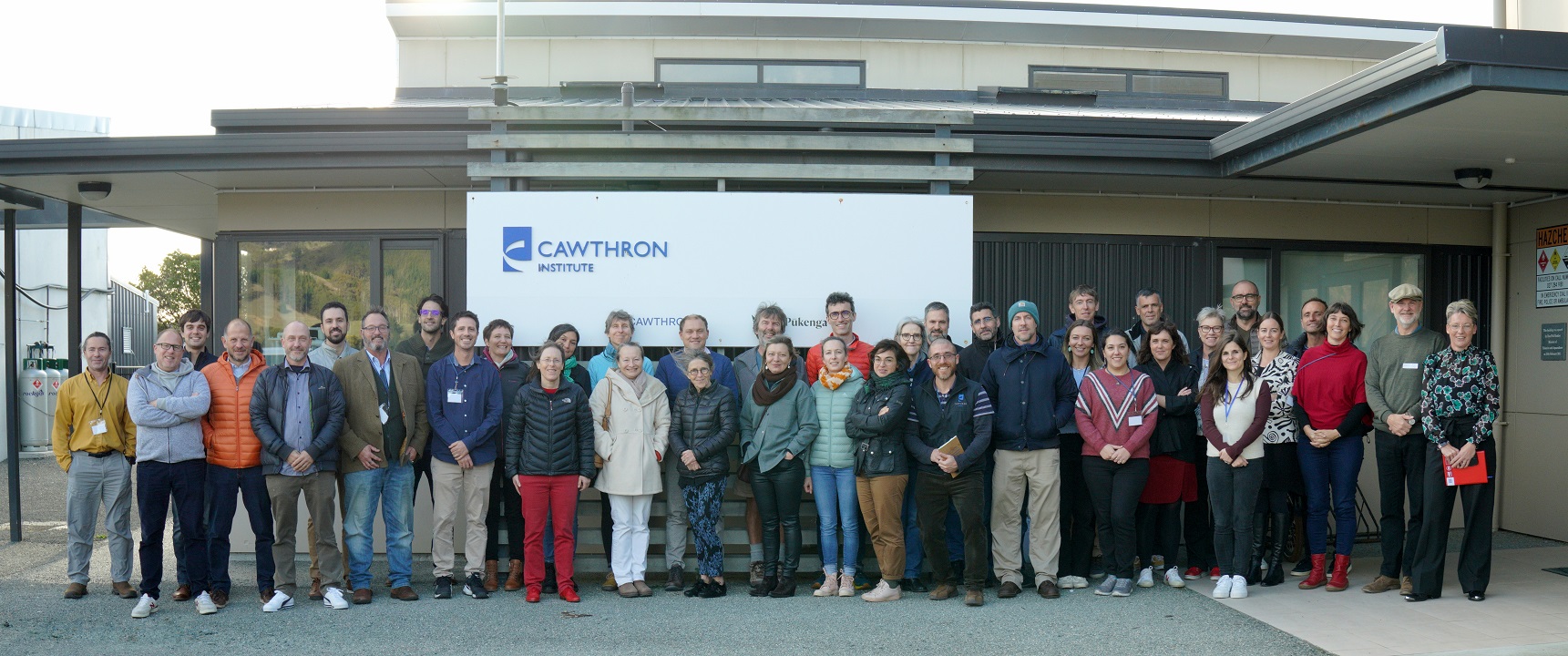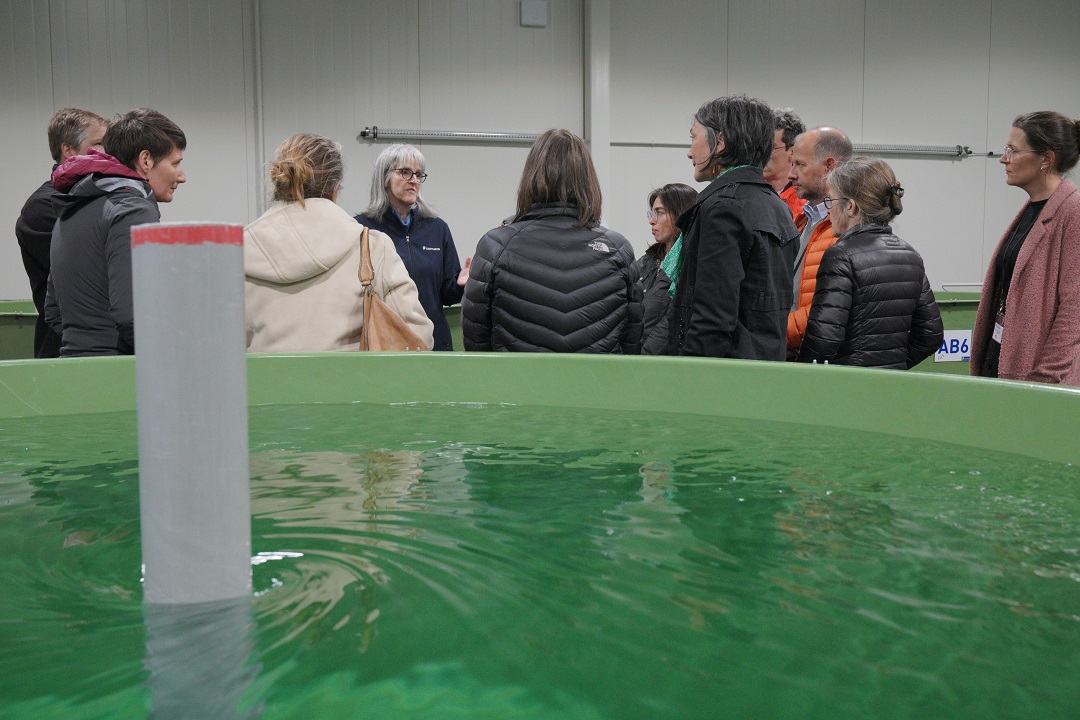Cawthron scientists foster French connection
29 May 2024
Scientists at Cawthron Institute in Whakatū Nelson have welcomed approximately 20 scientists from IFREMER, the French national institute for ocean science and technology, for a five-day knowledge exchange workshop.
Cawthron’s Chief Science Officer Dr Cath McLeod said the focus of the visit will be on exploring opportunities for research collaboration in areas of shared interest, including biodiversity and the blue economy.

Image: Cawthron Institute. IFREMER scientists with Cawthron colleagues at the Cawthron Aquaculture Park in Nelson.
“As research institutes dedicated to understanding and protecting the world’s oceans from urgent and increasing environmental pressures, Cawthron and IFREMER are eager to collaborate to leverage our efforts and have a greater combined impact,” said Dr McLeod.
“We’re keen to work together in a few priority areas including the impact of climate change on human and environmental health, advancing the future of marine aquaculture and transitioning towards sustainable blue economies.”
IFREMER’s scientific director, Dr Chantal Compère, said that while the ocean offers great potential in terms of biological resources for the benefit of society, there are challenges that must be overcome if this potential is to be realised sustainably.
“There are a lot of different pressures on marine ecosystems, including aquatic disease epidemics, invasive species incursions, harmful algal blooms and pollution, and all of these are made worse by climate change,” Dr Compère said.
“Both Cawthron Institute and IFREMER hold expertise in these fields of science, and combining our knowledge and skillsets will create opportunities to enhance the health and wellbeing of the marine environment and the people who depend on it for food and income.”
“It is important to IFREMER that scientists from both mainland France and the IFREMER Pacific research centre are gathering with New Zealand colleagues, as we expect ambitious science projects addressing issues across latitudes to stem from the Nelson workshop.”
Anne Rouault, Science & Higher Education Attachée at the Embassy of France in New Zealand, said that collaborative research between France and New Zealand is an important feature of the relationship between the two countries.
“Today, science cooperation between New Zealand and France is strategically scaling up. New opportunities such as the recent association of New Zealand to Horizon Europe will support this positive dynamic,” Rouault said.
“The collaboration between IFREMER and Cawthron will increase our capacity to deliver on the blue economy agenda and to address the global challenge of ocean protection. This cooperation occurs at a crucial moment ahead of the 3rd UN Ocean Conference to be held in Nice in June 2025.”
The IFREMER delegation will visit Cawthron’s Nelson research facilities including the Cawthron Aquaculture Park at Glenduan and its main Halifax Street campus.
Dr McLeod says the visit is enormously beneficial for New Zealand’s research, science and innovation system, as well as the relationship between both countries.
“We are thrilled to have a delegation of this size visit for an entire week – I think that demonstrates the seriousness of our commitment to this partnership and our eagerness to do some excellent and impactful science together that will create new opportunities for the growth of the blue economy and an increased focus on protecting and enhancing marine biodiversity in the Pacific and beyond.”

Image: Cawthron Institute. IFREMER scientists tour Cawthron’s Finfish Research Centre.

Image: Cawthron Institute. Dr Cath McLeod, Chief Science Officer.